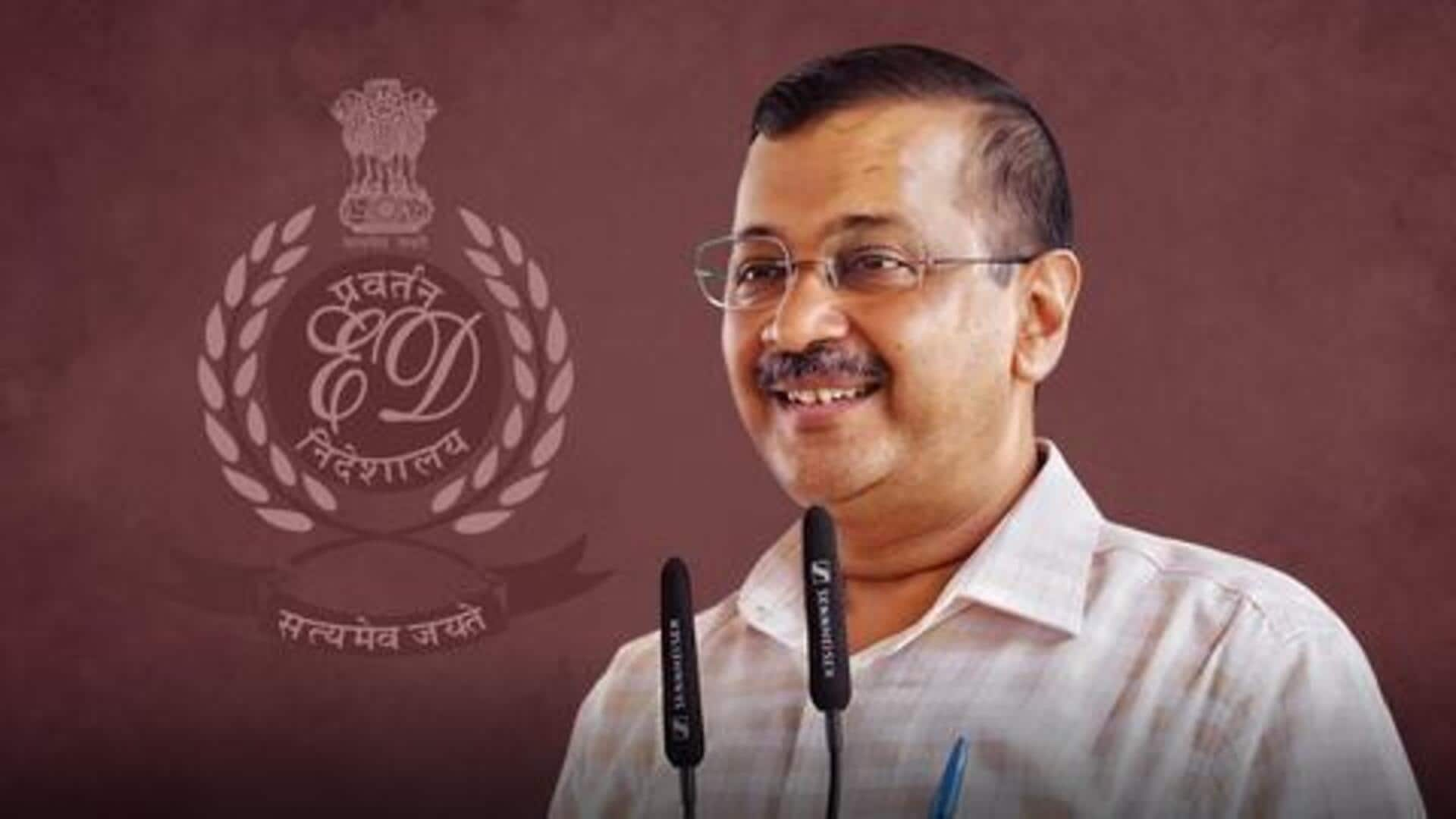
Delhi CM Kejriwal issues first order from ED custody
What's the story
Delhi Chief Minister Arvind Kejriwal, currently detained by the Enforcement Directorate (ED), has issued his first government order from lockup. The order is related to the national capital's water supply, Aam Aadmi Party (AAP) sources said. Reportedly, it was issued through a note to Delhi minister Atishi, who handles the sector. With the AAP making it clear that Kejriwal will continue to be CM despite his arrest, the question now is whether he will be able to fulfill his duties.
Context
Why does this story matter?
Kejriwal is under ED custody until March 28 in a money laundering case linked to the now-scrapped Delhi liquor policy. On Thursday evening, the probe agency arrested him after conducting searches at his residence and questioning him for over two hours. The action, led by an additional director-level officer and involving a 10-member team, marked the 16th arrest in the case. The move came shortly after the Delhi High Court denied protection from arrest to Kejriwal in the case.
Challenges
Challenges for Kejriwal to govern from jail
One of the challenges of running the government from jail is that jail regulations could present significant obstacles, per reports. A former law officer of Tihar Jail in Delhi, Sunil Gupta, told NDTV that a jail inmate is allowed to meet his family, friends, and associates only twice a week. "Running a government from jail is not straightforward...So it will not be easy for him to govern with these restrictions," he added.
Solutions
House arrest could enable Kejriwal to continue duties
Experts said one potential solution for Kejriwal could be if he is put under house arrest instead of jail custody. This would enable him to carry on with his duties. However, the move would require approval from Lieutenant Governor (L-G) Vinai Kumar Saxena, who holds the power to designate any building as a jail. Gupta referred to previous cases where court complexes were marked as temporary jails, indicating a precedent for such a decision.
Uncertainty
Uncertainty clouds Kejriwal's political future
The probability of L-G Saxena sanctioning house arrest for Kejriwal remains doubtful due to his past conflicts with the AAP government. Concurrently, the Union Home Ministry is reportedly scrutinizing the consequences of Kejriwal not stepping down. Reports suggested that if he refused to resign, the central government might be compelled to suspend or dismiss him from his position. This can be done as per the standard protocol formulated for detained government officials.